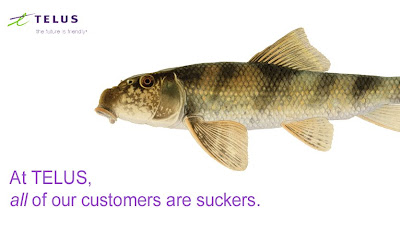Orwell Would Be Proud
See that? It’s a quarter. More specifically a Canadian quarter commemorating those who have served in wars past (for those outside Canada who aren’t familiar with the poppy symbol and how it ties in, check this out). However, according to United States Defence, it could have been a device used for espionage, utilising nanotechnology no less. Yes.
According to this article (and many others) the U.S. Defence Department was so astonished by the poppy design on the quarter (to be honest, I think Canada was one of the first in the world to use this sort of coloured dye on its coins) that it went under intense scrutiny, under the presumption that they could be used for tracing American “contractors” (aka agents – and by the way, when will such linguistically neutered stupidity end? A contractor hires a plumber to fix the kitchen sink, not air-dropped in the desert to create an uprising of local tribesmen) who pocketed them.
This is obviously very, very silly. Worse still, it’s indicative of such a ludicrously paranoid environment that it scares me to think what else has been flagged by the USDD? Migratory birds? Snow? Maple syrup?
Article/Comment: Watch Your Language
(This post is currently in competition in the Philosophy Blog War. Feel free to cast your vote for it. If you like, you can vote directly by pressing this button.)
I read a very interesting essay on the BBC News website entitled “Chaotic world of climate truth”. It’s written by Mike Hulme, Director of the Tyndall Centre for Climate Change Research and in it he criticises the hyperbole which casts a pall on the discussion of global warming.
This is not a partisan piece, in the sense that Mr Hulme is not one of a seeming endless army of paid-for voices in the climate change debate. By virtue of his office and his profession, he makes his argument clear from the outset:
Climate change is a reality, and science confirms that human activities are heavily implicated in this change.
But over the last few years a new environmental phenomenon has been constructed in this country – the phenomenon of “catastrophic” climate change.
It seems that mere “climate change” was not going to be bad enough, and so now it must be “catastrophic” to be worthy of attention.
The increasing use of this pejorative term – and its bedfellow qualifiers “chaotic”, “irreversible”, “rapid” – has altered the public discourse around climate change.
This blog entry isn’t about climate change (notice there are no stock images of ensuing storm clouds and other nature metaphors for imminent disaster). I’m not apathetic to the topic but, reading his essay, Mr. Hulme’s description of how hyperbole cheapens legitimate debate rang very true and has implications outside of the context of this particular subject.
We’re living in an increasingly ideological age. I cannot remember a time (I’m 36, so I gather there are precedents beyond “my years”) when words such as intolerance, fundamentalist, and radical were used so extensively (the trope intolerant fundamentalist radical, for example, is no longer the sole jurisdiction of religious persecution but rather has extended itself to include such diverse groups as environmentalists and, my personal favourite, secular progressives). I’ve written here about the decline of discussion and true debate in N. American society; it’s as if we feel that no one will listen to us unless we raise our voices to the sky and colour our points with invective. Nothing is important anymore: it’s imperative. Nothing is troubling anymore: it’s a crisis.
In exaggerating the situation with alarmist language (which is often disingenuously intended to get attention rather than be realistic/logical) we fall into a trap. Like the boy who cried wolf, if our standard for discussion is hyperbole, then who will truly believe us when there truly is something to be alarmed about?
I see this behaviour not only in the usual suspects (blogs, user groups, forums), but also emanating from supposedly respectable institutions (governments, scientific research institutes, charities). It’s in the newspapers, it’s on television, it’s in our RSS feeds. I suppose it’s the scale of it, and the feeling (or fear) that this is the “new normal” of discourse which concerns me.
The language of catastrophe is not the language of science.
Those words start Mr. Hulme’s summary. In the context of how I feel I would say that “the language of catastrophe is not the language of an evolved society”, but rather one that is becoming more and more tribal and classist.
Separated at Birth
CopyWrong
I once watched a PBS-televised lecture featuring writer Clifford Stoll. He wrote one of the first true-life hacker books, called The Cookoo’s Egg (ISBN: 0671-72688-9), about his efforts to track a “telnet” hacker who was using the Berkeley University server hub as a means to tap into the Department of Defense. A very, very good book.
In the lecture he was discussing copyright issues and how it is becoming harder and harder for people to express themselves due to large corporations buying-up the rights and then registering patents for everything from Mickey Mouse to mere phrases/ideas written on cocktail napkins. He said the following (note: I’m paraphrasing due to the fact that it was over 5 years ago that I watched it):
“If we had the same copyright protection rules historically that we have now, you know who the richest people on Earth would be? The League of Greek Mathematicians; because every time you used the Pythagorean Theorem you would have to pay a fee.“
I cannot have chosen a better way to convey how utterly stupid and self-destructive the current copyright laws have become. I’m not arguing against someone protecting the fruits of their invention, however I neither support legally protecting a concept nor extending the patent protecting an invention for more than a reasonable fixed period of time. Historically the reason for patenting an invention was so that the originating inventor would have unabated means (in the marketplace) to collect the rewards of their work/investment – but it wasn’t meant to last forever.
Strangely, this was thwarted by a man who will probably go down in history as “Cher’s first husband”, Sonny Bono. He involved himself in politics and fought (until his death) to extend copyrights indefinitely. One can only speculate that he was concerned “I Got You Babe” wouldn’t net him any more proceeds. Details of this law (amended and passed) are here.
My reasoning is this: the evolution of an idea is often the result of a collaboration of thinkers over a long period of time. When the Principia Mathematica was published, Sir Isaac Newton – when asked about his breakthrough idea of gravity – said that he was only “standing on the shoulders of giants”, namely the likes of Galileo, Kepler, and Copernicus: those who had come before him and provided the necessary groundwork to provide Newton with the tools to complete the picture.
The current environment is simply bad capitalism: dramatically limiting competition and the free evolution of ideas for short term profit. Sad.





